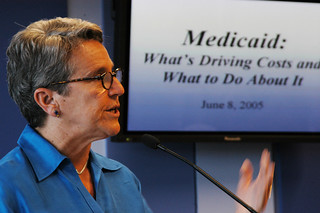KSL has a John Swallow headline that deserves to be examined. The article provides details but the headline alone is sufficient to draw a final conclusion to the John Swallow saga from a public interest perspective (in other words, this isn’t about drawing a final conclusion from a civil or criminal perspective, but from from the perspective of whether Swallow should have been able to serve out his term in office).
The headline is: New warrants show Swallow campaign hid donations from IRS
Some comments at KSL show some people reading that as saying that Swallow received campaign donations from the IRS that he hid. The truth is that these were donations from the payday lending industry that weren’t disclosed to the IRS.
Does this make Swallow a criminal?
Let’s assume for a minute that Swallow himself was unaware of this deception on the part of his campaign. In that case Swallow wouldn’t be considered a criminal. I don’t make that assumption because I consider it likely (in fact the likelihood of that assumption proving true is remote). I make that assumption because it illustrates the more important point that people who would engage in such activities are the kind of people with which John Swallow surrounded himself.
That fact alone should be sufficient reason for a man of integrity to leave his public office (or at the very least distance himself from such associates) which is why I confidently stated 8 months ago that he should step down.
Update: Holly Richardson just wrote about the House Investigation Committee findings that were reported just before Christmas and not only was the scope of wrongdoing greater than I was previously aware, but (unsurprisingly) their findings explicitly indicate that Swallow was directly involved in all of it.



